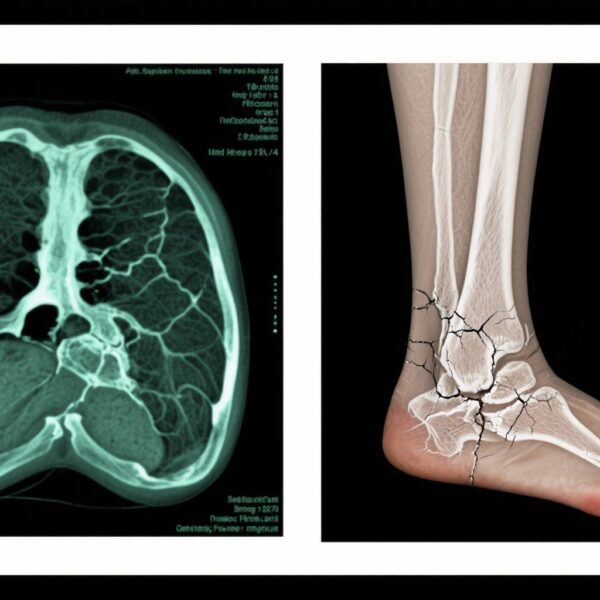Highlight
Approximately 20% of individuals with Rome IV-defined IBS in the UK regularly use opioids despite guidelines advising against their use for chronic non-malignant pain.
Regular opioid use in IBS patients correlates strongly with reduced disease-specific and generic quality of life, heightened psychological distress including anxiety and depression, and greater impairment in daily activities.
Opioid users incur significantly higher IBS-related direct healthcare costs, including investigations, medications, and unplanned hospital visits.
Patients on opioids exhibit a substantially increased willingness to accept considerable mortality risk for a cure of IBS symptoms, reflecting the substantial burden of their disease.
Study Background
Irritable bowel syndrome (IBS) is a prevalent functional gastrointestinal disorder characterized by chronic abdominal pain and altered bowel habits that substantially impair quality of life. The Rome IV criteria provide a standardized diagnostic framework for IBS diagnosis. Although IBS is not life-threatening, it imposes a considerable symptom burden, frequently leading to increased healthcare utilisation.
In the United Kingdom, opioid prescription rates are among the highest worldwide. Opioids carry risks of dependency, adverse gastrointestinal effects, and central nervous system complications, and international guidelines strongly caution against their use for chronic non-cancer pain conditions, including IBS. Nonetheless, opioids continue to be prescribed in some patients with chronic abdominal pain, potentially exacerbating symptom burden and healthcare costs.
Study Design
This cross-sectional study included 752 adults with Rome IV-defined IBS recruited through ContactME-IBS, a UK registry populated primarily by those diagnosed by general practitioners or gastroenterologists. Data collection occurred in July 2021 via electronic mailshots. Participants provided information on demographics, IBS subtype, opioid use, quality of life (both disease-specific and generic measures), psychological status (anxiety and depression), activity impairment, and healthcare utilisation including costs related to investigations, medications, and hospital attendances.
Key Findings
The prevalence of regular opioid use among Rome IV IBS patients was 19.7% (148/752). This prevalence was consistent across IBS subtypes (IBS with diarrhea, IBS with constipation, mixed IBS, and unclassified), indicating opioid use was not confined to a specific symptom profile.
Quality of life was significantly poorer among opioid users compared to non-users. Both IBS-specific assessment tools and generic health-related quality of life instruments showed statistically significant reductions (p < 0.001). This suggests that opioid use is associated with greater symptom severity or a more refractory disease course.
Psychologically, opioid users had higher rates of anxiety and depression (p < 0.001), correlating with more profound impairment in daily activities (p < 0.001). This constellation may reflect a bidirectional relationship where opioids exacerbate psychological distress or patients with greater distress are more likely to be prescribed opioids.
Healthcare utilisation analyses revealed increased direct costs among opioid users: more extensive diagnostic investigations (p = 0.003), increased IBS-related medication use other than opioids (p < 0.001), and a higher frequency of unplanned hospital attendances (p < 0.001). These findings indicate a heavier healthcare burden associated with opioid use.
Notably, opioid users expressed a markedly higher willingness to accept the risk of death from a hypothetical medication to cure IBS symptoms (p = 0.002), emphasizing their desperation for effective symptom control and the profound impact on their lives.
Expert Commentary
This study underscores the paradox of opioid use in IBS: despite clear guideline recommendations against opioids due to their limited efficacy and significant harms in treating chronic non-malignant pain, substantial proportions of IBS patients continue opioid therapy. The association with worse quality of life and higher healthcare costs likely reflects both direct opioid-induced adverse effects such as opioid-induced bowel dysfunction, and more severe underlying disease or psychological comorbidities.
Limitations include the cross-sectional design, precluding causal inference—whether opioids worsen IBS outcomes or patients with more severe disease are prescribed opioids remains uncertain. Additionally, reliance on self-reported data may introduce recall bias. The cohort, drawn from a registry, may not represent all IBS patients, potentially skewing towards those engaged with specialized care.
Biologically, opioids impact gut motility and visceral sensitivity, mechanisms integral in IBS pathophysiology. Chronic opioid use may exacerbate constipation and abdominal pain, perpetuating a vicious cycle. This emphasizes the importance of adherence to evidence-based guidelines recommending non-opioid management strategies, including dietary, psychological, and pharmacologic treatments tailored to IBS subtypes.
Conclusion
This UK community-based study reveals that opioid use among Rome IV IBS patients is common and associated with significantly poorer quality of life, increased psychological comorbidity, greater activity limitations, and higher healthcare utilisation and costs. The findings highlight an urgent need for clinician education and system-level interventions to reduce opioid prescribing in IBS patients, promote safer and more effective symptom management, and improve patient outcomes. Further longitudinal studies are warranted to clarify causality and evaluate interventions to address opioid overuse in this vulnerable population.
References
Butt MF, Goodoory VC, Ng CE, Black CJ, Ford AC, Corsetti M, Paine P. Prevalence of Opioid Use and Associated Healthcare Outcomes in Rome IV Irritable Bowel Syndrome in the United Kingdom. Aliment Pharmacol Ther. 2025 Oct 8. doi: 10.1111/apt.70400. Epub ahead of print. PMID: 41060048.


